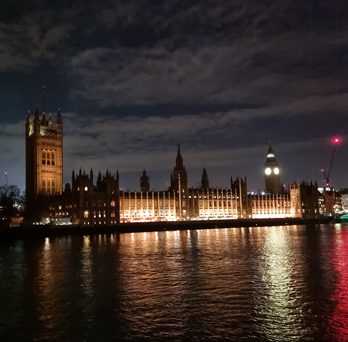Bang to Reichs – German coup is foiled, was the front page headline on the free Metro newspaper on December 8, writes Mark Rowe.
It seemed hard to believe – that plotters planned to attack the Reichstag in downtown Berlin, and set up an extreme right-wing government. Those arrested included the ‘eccentric aristocrat’ Prince Heinrich XIII.
Commentators including at risk forecasting consultancies advising corporate security made a connection with the attempted coup in January 2020 on the Capitol in Washington DC, when rioters sought to overturn the election of Joe Biden as President and not Donald Trump; as the FBI is still investigating.
At least two implications arise for security. First, that the plotters allegedly sought to recruit in the police and armed forces. That would make sense, to draw on a cadre of disciplined people who can give and take orders, and who have access to weapons and know how to use them. Personnel security, compared with physical security (gates, locks and fences) and plans and processes, can be overlooked, or left to human resources (HR) and therefore fall between two stools. Or, screening can be of a person before they enter employment, and if they pass, they are not checked during employment. That overlooks human nature – that people may change, whether they turn to fraud or are corrupted or simply fall off the rails – to a drugs or gambling habit, which leads to reckless rather than criminal behaviour, which is a HR issue.
Secondly, what of security of parliamentary buildings. Parliamentarians have a dilemma. If they further secure premises, by militarising them, that may play into the hands of the extremists; their narrative of arrogant elites who are remote from the population. The same goes for other public buildings such as hospitals, schools and universities, and museums; they are there to serve people and want to be and appear welcoming, but not be an ‘open door’ to the criminal and anti-social.
You only have to visit Parliament Square and some protest may be going on in the vicinity; for any protest movement worth its salt will seek to literally aim its noise and point its banners at those in power. The old BBC TV comedy Citizen Smith came to a climax with Wolfie Smith and his handful of followers storming the Houses of Parliament, only to be crestfallen when a man with a broom told them that the place was on holiday and empty. The reality of a real coup is unfunny. In her celebrated novel The Handmaid’s Tale, the author Margaret Atwood is tantalisingly vague about how the United States government is overthrown and a religious tyranny put in its place; but one detail is that the president is assassinated. In other words, any coup, successful or not – such as the Spanish colonels in 1981 – aims to physically capture the place of political power.
Or, as in the Easter 1916 uprising in Dublin, the revolutionaries go for the centre of communications; the Post Office on O’Connell Street (now a museum to that event).
The Home Office recently announced a first meeting of a ‘Defending Democracy Taskforce’, chaired by the new Home Office minister Tom Tugendhat; and he outlined that thread of work in a speech to a think-tank yesterday, stressing the challenges to democracy from states, spreading misinformation online and seeking to undermine institutions such as political parties and universities; ‘strategic’ and ‘state-based threats’, ‘covert influence’ rather than outright coup attempts.
But Britain has had its share of plotting. In the crisis of May 1940, one of the first acts of Winston Churchill’s government was to arrest and imprison without trial hundreds of fascists in case they aided a German invasion (after the government gave itself the legal power to do so). While the main target was the British Union, led by Sir Oswald Mosley, also arrested was another former Labour MP, John Beckett. His son Francis has written his biography, The Rebel Who Lost His Cause: The Tragedy of John Beckett. Documents at the National Archives at Kew show how Beckett, who had left Labour and joined with Mosley only to split and form a splinter national socialist party, by May 1940 was behind the similar British People’s Party, and worked with Lord Tavistock, another eccentric aristocrat (he was reputed to own 400 parrots). Early in 1940 Tavistock made public speeches about seeking peace with Hitler, and made personal diplomatic efforts via then neutral Dublin. Beckett drew up a list, including Tavistock, of men who (fancifully) would take power if Churchill and the established order fell. That was all enough to get Beckett interned; though not Lord Tavistock.









